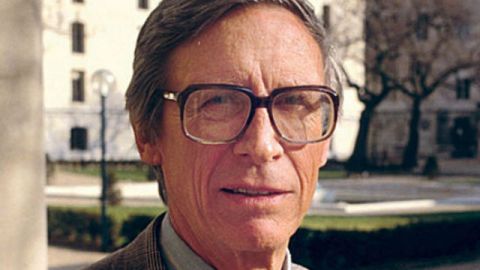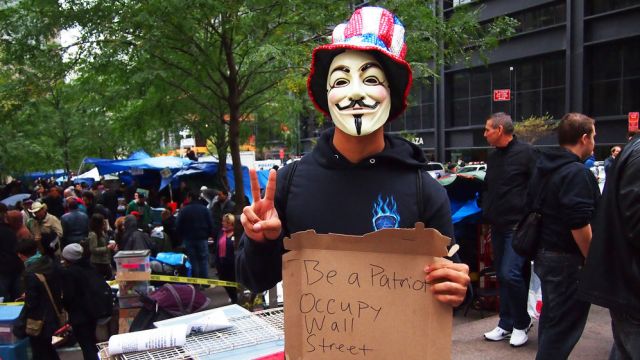Obama’s Philosophical Muse: John Rawls

U.S. presidents aren’t often asked to explain their governing visions in terms of political philosophy. References to the Founding Fathers (Hamilton, Madison, Jefferson, Washington et al.) are ubiquitous and safe, and Obama likens his challenges to those of President Lincoln. But we don’t hear much in the way of serious engagement with the history of ideas from our chief executives.
Maybe it’s better that way. When the candidates for the Republican nomination were asked during a debate in 1999 “What political philosopher or thinker do you most identify with and why?” George W. Bush set the tone with his response: “Christ, because he changed my heart.” The rest of the field took this non-answer as a cue to flaunt their own religious credentials rather than articulate a set of political principles rooted in a particular thinker’s corpus. Though Steve Forbes cited 17th-century theorist John Locke as his patron saint, names like Rousseau, Paine, Montesquieu and Tocqueville were never uttered. It was all about Jesus.
If you Google the terms “Obama + Marxist,” you’ll come up with about 6.5 million hits. But Obama is no Marxist, and no socialist, as some sane commentators take pains to explain. He has never copped to the term, but, as I argued at the Economist this week, Obama is pretty clearly a Rawlsian. For John Rawls, a Harvard philosopher who died in 2002, inequalities of wealth and income become morally problematic when they systematically disadvantage or disenfranchise the least-well-off members of society.
Some Economist readers are raking me over the coals. This cantankerous comment is presently the “most recommended” by other readers:
‘Looking at the speech a week later, I am even more convinced Mr Obama hit it out of the park… Another virtue of this approach is to provide an overarching vision for the republic. The narrative Mr Obama articulates to frame the debates seems to flow directly from the pages of John Rawls’s “A Theory of Justice”. In that 1971 masterwork and in “Justice as Fairness” (2001), Rawls developed a political philosophy of liberalism that puts a premium on the value of equality.’
Jesus Christ! Can we put an end to this ridiculous notion that America is a nation of overgrown babies who need the Great White Father in Washington to set us on his knee and tell us a bedtime story?
What exactly did Obama knock out of the park? And what park exactly? Maybe I’m only speaking for myself, but I don’t need an “overarching vision for the republic.” I need the roads to not have potholes in them. I need to know whether or not I’ll see any of this FICA money again. I have plenty of purpose in my life – my family, my friends, my hobbies and career – and to the extent that I may need more, I ain’t looking to the federal government to provide.
First, pass a budget for the first time in 4 years and then these clowns can try to impress me with their grand national visions.
Beyond the amusing reference to our first black president as the “Great White Father,” this response startles me for its equation of “an overarching vision for the republic” with a purported penchant for infantilizing the American people and telling them bedtime stories. I wonder how effective a State of the Union address would be if it focused questions as small as filling potholes in Peoria. As for ensuring the future solvency of Social Security and passing budgets: yes! These are examples of real government priorities that a Rawlsian lens helps bring into tighter focus. Given the rapidly expanding gap between rich and poor in the United States, Rawls’s guidelines for how to imagine an economically productive society that treats its people as free, equal citizens worthy of respect and decency are just what we need right now. I can’t think of a better muse for an American president.





